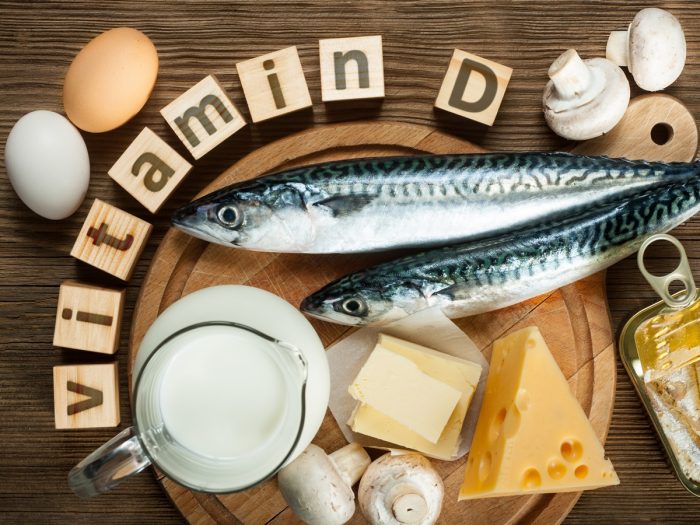A vitamin D deficiency can be very serious, with a number of unwanted side effects, so ensuring you keep your levels up is very important.
What is Vitamin D?
Vitamin D is a pro-hormone, often referred to as a vitamin, that is produced by the body following exposure to sunlight. There are also dietary sources of vitamin D, which people can increase in their diet if they are suffering from a deficiency. This vitamin is a very important part of maintaining bone density and preventing osteoporosis, in addition to its role in reducing the risk of chronic diseases. Depending on where you live, what season it is, and what your diet is like, you may be at higher risk for this deficiency. [1]
Vitamin D Deficiency Symptoms
The major symptoms of a vitamin D deficiency include the following: [2]
- Chronic fatigue
- Mood swings
- Depression
- Overall exhaustion
- Back pain
- Bone ailments
- Muscle discomfort/weakness
- Hair loss
You may realize that your body’s wound healing abilities have been compromised, and you may experience an increase in hair loss. Without vitamin D, your body will be unable to maintain your bone mineral density, making you more susceptible to brittle bones and breakage.
Vitamin D Deficiency Causes
The primary causes of vitamin D deficiency include an inability to absorb vitamin D, or limited sunlight exposure, among others.
Obesity
Numerous studies have found that having a vitamin D deficiency has been closely linked to obesity. It is believed that by losing weight, your body will be able to more efficiently produce this prohormone. [3]
Absorption Disorder
Some people suffer from a condition in which the digestive tract is unable to absorb vitamin D from dietary sources, meaning that the only way to get enough vitamin D is through exposure to the sun. [4]
Kidney Problems
In other people, their kidneys are unable to convert vitamin D from sunlight, meaning that they must rely entirely on dietary sources of this nutrient, which can be difficult. [5]
Sunlight Exposure
If you live near the poles, or experience extended periods of darkness, the lack of sunlight deprives you of your primary source of vitamin D. This is one of the most common causes of this deficiency. [6]
Dark Skin
It has been found that those with dark skin struggle to synthesize as much vitamin D as those with pale skin, so certain cultures and nationalities are more prone to deficiencies. [7]
Poor Diet
If you don’t consume any foods that are high in vitamin D, you may not be getting enough on a daily basis, leading to the symptoms outlined above. [8]
Vitamin D Deficiency Treatments
If you are suffering from this deficiency, there are some easy ways to remedy the situation, including spending more time outdoors, making dietary changes, or receiving more specialized treatment.
Sunlight Exposure
Even spending 30-60 minutes per week in the sunshine can provide the body with enough vitamin D for its needs, so get outside when you can!
Dietary Changes
Adding foods like eggs, cheese, milk, tuna, mushrooms, and grains to your diet can boost your daily intake of this key vitamin.
Specialized Treatment
If your kidneys or digestive tract are unable to synthesize or digest this vitamin, respectively, then specific medications or specialized treatment may be required, but there are viable options for improvement.

